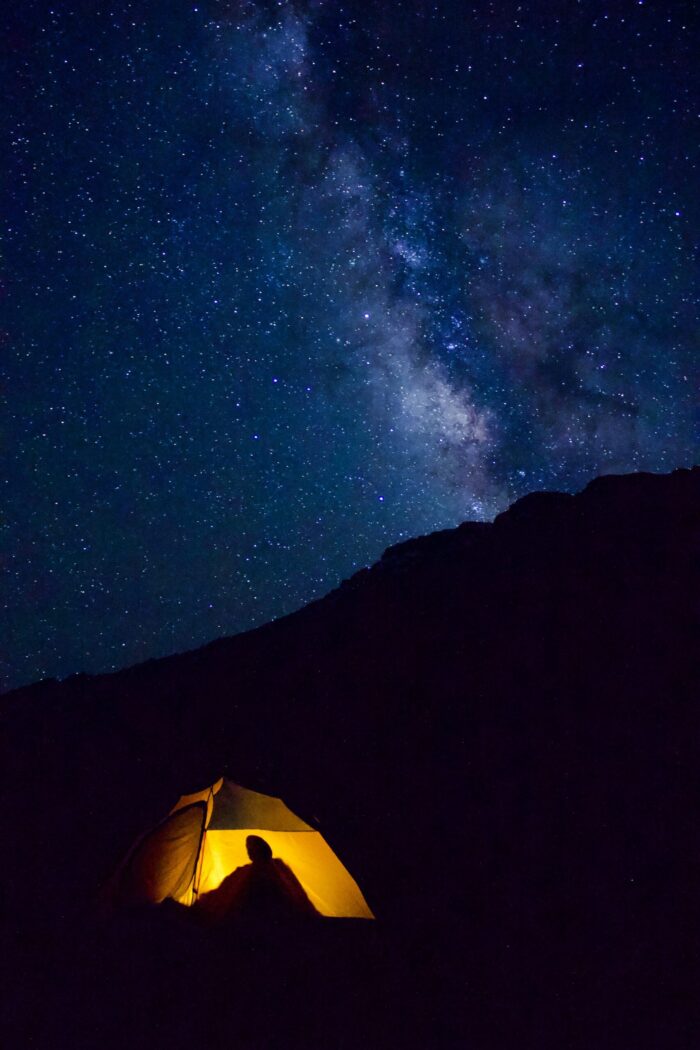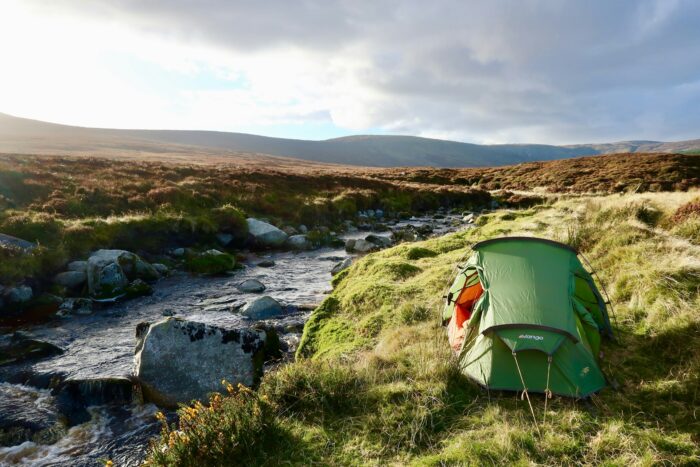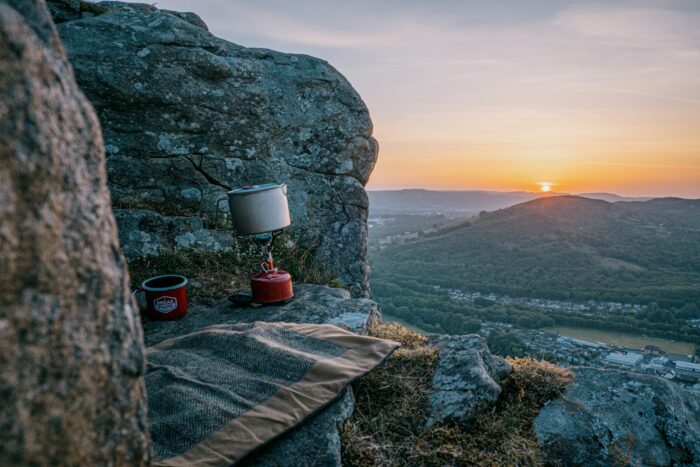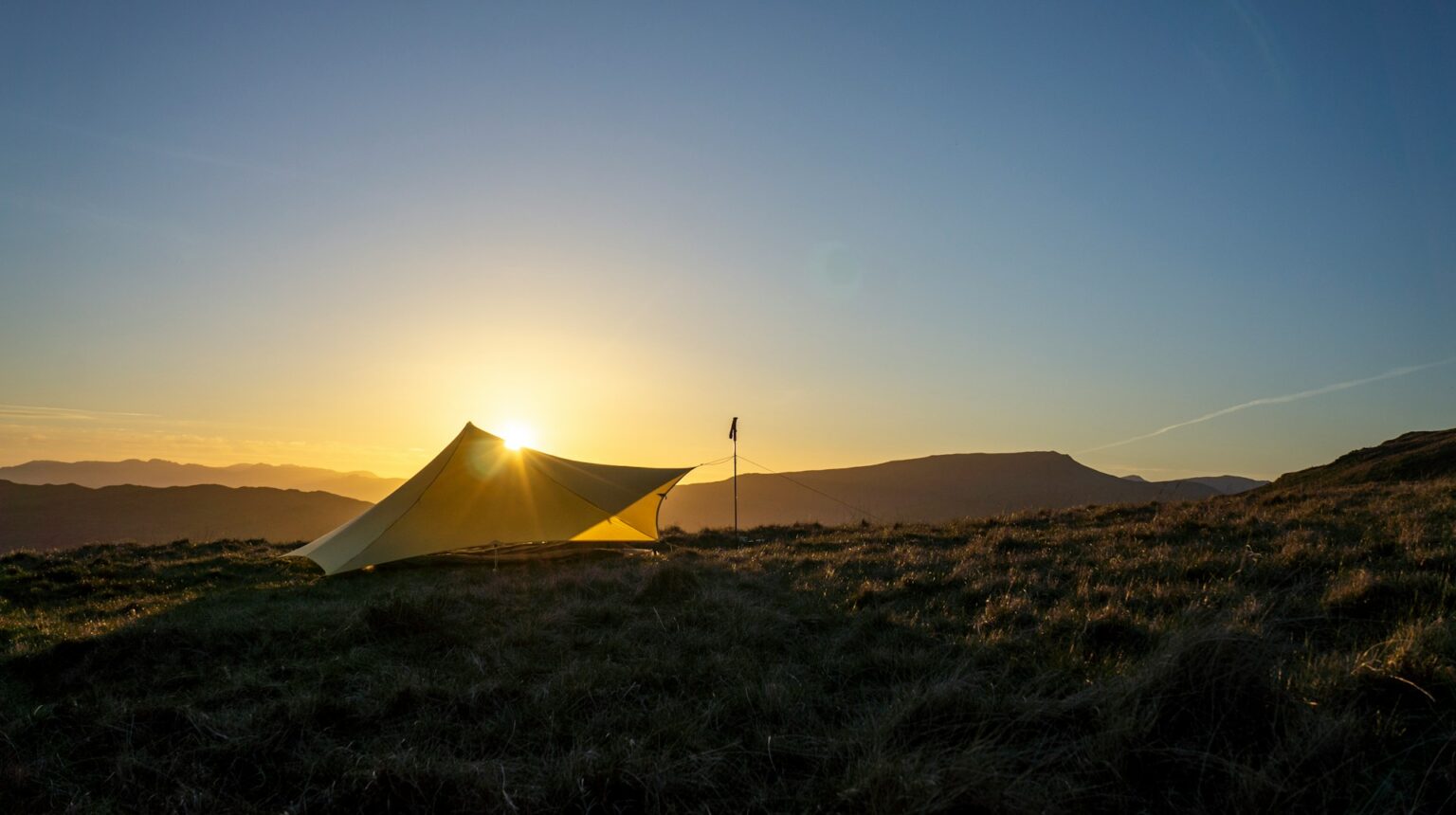Wild camping is a relatively new term for something many of us have done since we were kids.
It involves camping outside a campsite or other camping area and sleeping in your tent in the wilderness.
I camped hundreds of times in my youth and never stayed at an organised campsite. But times have changed and regulations are now being enforced. And so if you want to camp under the stars away from the hordes, there are a few things to consider.
Is it legal?
Before heading off on your trip, it’s best to check the rules in the region you wish to camp in. As a general rule of thumb, in England, Ireland and Wales you need the landowner’s permission. But, in some places in Scotland, such as Loch Lomond, you now need a permit. So always check beforehand.
If tracking down the landowner turns out to be a bit challenging, try a simple Google search for the area. For instance, if you’re planning to wild camp on Scafell Pike, a quick Google search will show that the mountain is owned by the National Trust, and they are easy to get in touch with.
If it is not owned by the National Trust you can also use the Land Registry service to identify the landowner. This service is available online, though some information might require a fee. Sometimes the process can take some time and there’s no guarantee the landowner will respond, or that you’ll even be able to find them. So, preparation is key. Plan ahead and allow time to research, contact and receive permission to camp. If all else fails, find somewhere else.
England
Most of the land in England is owned by landowners. Wild camping is not banned in England but you do need the landowner’s permission to wild camp. The only place wild camping was legal without permission was in Dartmoor National Park. But, there has been a long-standing court case about the right to roam. So check the status of this if you’re heading that way and get the relevant permissions.

Wales
Regarding wild camping in Wales, the rules are similar to those in England. You need to get permission from the landowner. In Snowdonia National Park, most of the land is privately owned, so it’s best to talk to the landowner before setting up camp. Or, you could choose one of the campsites within the park for a hassle-free experience.
Over in Brecon Beacons National Park, much of the land is also privately owned. Again, you’ll need permission before pitching your tent. Finding out who owns the land can be a bit tricky. A good starting point is often the local farmer, as many of them own large portions of the land in the area.
Scotland
Wild camping is generally legal across most of Scotland, thanks to the Land Reform Act 2003. This law allows wild campers to set up their tents on most unenclosed land, giving you plenty of options for your outdoor adventures.
But, there’s an exception in Loch Lomond and the Trossachs National Park. Due to overuse and environmental damage, this area is now subject to specific wild camping byelaws. This means you can only camp within designated campsites or if you have a camping permit.
It’s essential to follow the ‘leave no trace’ guidelines while wild camping in Scotland. These guidelines help protect the natural environment and local wildlife. Before you head out, it’s a good idea to read up on the Scottish Access Code to ensure you’re well-prepared.

Ireland
Wild camping in Ireland though not strictly legal, is often tolerated if you follow some basic guidelines. It’s always a good idea to seek permission from the landowner before setting up camp. In popular outdoor destinations like the Wicklow Mountains, respectful camping is usually allowed, especially if you follow the ‘leave no trace’ principles. This means camping in small groups, staying for a short period, and ensuring you don’t disturb the environment or wildlife. Always pack out what you pack in and leave the site as you found it.
The Wild Camping Code
This is a set of guidelines designed to help campers minimize their impact on the environment and respect the natural surroundings. Here are the key points:
Seek Permission: Always ask the landowner for permission before camping on private land.
Leave No Trace: Pack out all your rubbish and leave the campsite as you found it.
Camp in Small Groups: Avoid large groups to reduce your impact on the environment.
Stay for a Short Time: Don’t camp in one spot for more than a couple of nights.
Be Invisible: Set up camp away from paths, buildings, and livestock, and be discreet.
Respect Wildlife: Keep noise to a minimum and avoid disturbing animals.
Use a Stove: Instead of lighting a fire, use a portable stove to reduce the risk of wildfires.
Leave What You Find: Don’t damage vegetation or disturb natural features.
Dispose of Waste Properly: Use biodegradable products and dispose of human waste responsibly, burying it well away from water sources.
Be Considerate: Respect other people using the countryside and adhere to local regulations and guidelines.
By following these principles, you help protect natural areas and ensure they remain beautiful and accessible for future generations.
Safety
Camping in remote places is exciting but it is also important to consider your own safety. Make sure you let others know the route you plan to take and a rough itinerary. It doesn’t have to be 100% exact, but an idea of your route could be important in case of a rescue situation. If you’re staying in a hostel, let them know when you plan to return and your hiking route. Accidents can happen and if you’re in a remote place, you’ll be glad you followed this bit of advice.

Kit
Ahhh the great British weather. One minute it’s glorious sunshine, the next it’s gale-force winds and torrential rain. For this reason, you must pack the correct gear without going OTT. Being somewhere remote can mean that missing a bit of essential kit isn’t only annoying, it could be life-threatening. If you’re carrying everything in a backpack, try and keep the pack under 10kg.
You will need a lightweight tent that is easy to put up (even in the wind and rain). Consider the size and the amount of people you are camping with. If you’re alone, there’s no need for a three-man tent. The extra weight will soon annoy you.
Take a good quality sleeping bag and self-inflating sleeping mat (to provide a little extra comfort on uneven and lumpy ground). The value of a good night’s sleep can not be overrated. You’ll feel refreshed and ready for the next day’s hike and adventure.
Get yourself a good little camping stove that packs down and comes with a pan and utensils. You can buy these in any good camping store. A head torch is also vital as it will get VERY dark once the sun goes down.
Clothing should always be layers, layers, layers. Instead of one big thick sweater, use thinner layers that are lighter and less bulky. This way you can peel each one off if it gets warm but also you can put more on if it’s cold. Look at sweat-wicking material as a base layer, as this helps your skin breathe. And don’t forget one of the most important items: a good, compact waterproof coat.
Location, location
If you’re not confident about wild camping or haven’t got permission to camp, don’t do it. Instead, book a place to stay or camp somewhere local before taking a trip if you’re unsure of the laws or rules. If you’re ready and raring to go here are a few great locations for you to try out:
Isle of Mull, Scotland – welcomes wild camping in certain areas of the island. The stunning 300 miles of coastline provides a haven for birds and wildlife.
Cairngorms, Scotland – A National Park in the eastern Highlands of Scotland. Home to mountains, moorlands, lochs, rivers and a vast array of wildlife. It is legal to wild camp here – provided you do so responsibly.
Loch Lomond, Scotland – A permit is now required to wild camp in this National Park. Take care to avoid disturbing grouse shooting or deer stalking.
Dartmoor, Devon – As mentioned above, you can wild camp here but you now need permission from the land owner.
Nearly-wild
If you want to try wild camping rather than staying in a hostel or B&B, then there’s nearly-wild camping. This is a network of locations ‘willing to host campers who are looking for a wilder, secluded or quieter camping experience’. There is a membership fee to access all of their member locations but it may prove useful if you don’t have the confidence to “go fully wild” but want to dip your toes and do several camping trips throughout the year. The URL is https://nearlywildcamping.org/








